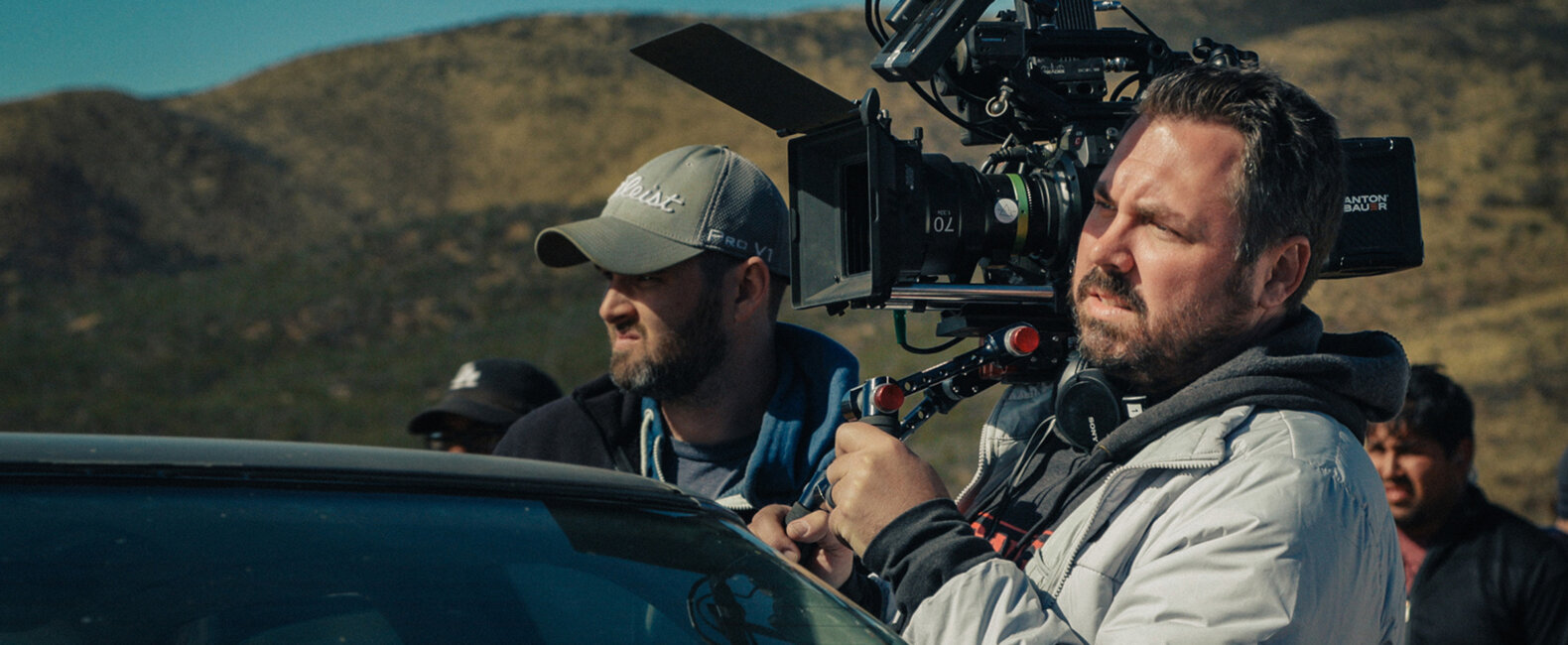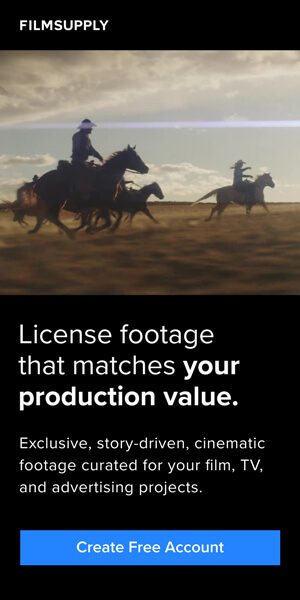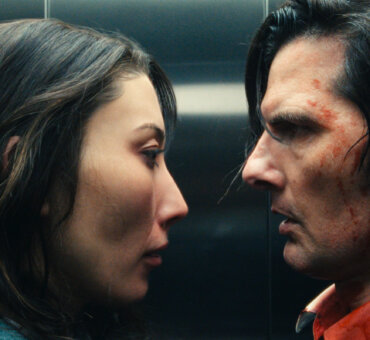There seems to be a disconnect between what we see as art and what we actually watch. Is it a coincidence that Marvel’s films get billions in revenue, while award-winning indie dramas barely break even? Revenue is no indication of quality, but it does indicate overall appeal. Perhaps a more important question is: Do they need to be mutually exclusive? Ryan Connolly doesn’t think so. As a short film director and founder of Film Riot, he’s doubled down on sci-fi, horror, and action films because, to him, they can mean different things to different people. Multi-purpose filmmaking, in a way:
[testimonial_slider autorotate=””] [testimonial name=”” quote=”I feel like if I want to say something I have to entertain you to take your walls down, so then I can say that thing. You know what I mean? Otherwise I’m just getting on my soapbox and yelling at you.” id=”t1″] [/testimonial_slider]
Ryan has a lot to say about the value of genre, and what it can mean to filmmaking as a whole. His most recent film, BALLiSTIC, is indicative of that fact — the high-octane, Short of the Week pick is the most layered, story-focused filmmaking he’s done yet. It has the most explosions of any of his films and the most emotional impact.
We talked to Ryan about his ambiguous approach to filmmaking, why he thinks sci-fi and horror may get a bad rap, and that infamous “bear scene” from Annihilation.
Filmsupply: Let’s talk about ambiguity. BALLiSTIC definitely doesn’t shy away from it.
Ryan Connolly: Since 2013 I’ve been toying around with this idea of a greater universe that’s connected to these stories that would hopefully be a feature one day. It would answer these questions that I’m posing and not currently answering.
I really like to go about short films like the middle of a sentence. You don’t get the beginning of the sentence and you don’t get the end of the sentence. I end on a comma, not a period. With features I don’t do it that way, but with short films I like to leave a lot up to interpretation. Instead of approaching it from a typical plot structure and story arch, going for more of an emotional arch. You get that emotional journey that ends up happening — so, hopefully, you get an emotional resolution and not necessarily a story resolution.
How do you do that without pissing people off? Or do you even take that into consideration?
Oh, it pisses people off [laughs].
Luckily, it pisses off less people than those who enjoy it. The ‘thumbs up, thumbs down’ is always a really nice indicator of how many people I annoyed versus how many people liked it. In this case, it was a success. But, the people who are annoyed, I think, must be more annoyed by this one because there’s a lot more story to it that’s open-ended. There are a lot more characters and you’re getting a little bit of their story, but there are a lot more questions posed. Some people just don’t like that.
I guess making people angry is good feedback, right? They care enough to want to know more.
Yeah, exactly. I guess they want answers to the questions we’re posing. And I don’t think they’re wrong — all of this is subjective. If you go and read the comments, you get a lot of people coming up with a bunch of different theories of what’s going on — some of them are completely wrong and way left-field. Some of them are dead on the money and I’m like, “Holy shit, did somebody tell you?” That’s really interesting to me. I look at short films as sort of an experiment, to be honest. BALLiSTIC and SENTiNEL were both that way. Yes, I’m very interested in this whole approach of ambiguity, going down that road, and giving you more of an emotional turn than actual information. But, I’m also finding out how much I can get away with not telling you something. What do I really need to give you for this to work? I hate expositions so much.
Before I get to the feature film, these shorts are a safe experimenting ground where I’m not losing millions of dollars. So, if I’m going to experiment with ideas, I’m going to do it now. A lot of people dig it, and some don’t. And, for the people that don’t, like I said, I think that’s valid.
It’s so subjective. For me, this short film is about the idea that life can be a whole lot of shit. That cycle is never-ending; it’s continuous. The only thing that we have really is to keep going. What fascinates me about that is the question of why we keep going — that’s where the beauty of life starts to find its way in. That’s very much what this film was about for me and that idea was much more interesting and important than any plot structure. Plus, how often in life do you get a beginning, middle, and an end?
Do you think the ambiguous approach is more effective in sci-fi or horror films?
I would think it works best in sci-fi and horror because there’s already that element of the fantastic. You’re more primed for things like that, whereas in a real-life drama it can be way more frustrating because, I think, we do want what we usually don’t get in life — answers, closure. A film can give us that. I would think for films that already have that fantastical element it would be a bit easier to accept that ambiguity.
Is that why you’re drawn to those types of genres?
I think, for me, some of the most beautiful things can be said through genre. There’s that bit of separation where you can get into allegory and things like that. You can use the fantastical to say things without feeling preachy or soap-boxy.
Take Annihilation, for example. I think that film is gorgeous from top to bottom in every aspect. I adore dramas as well. But, I go see a drama and I really love it, then I’m done thinking about it. This is just me personally; other people think the opposite is true. But, I go see Annihilation and for the next three weeks that’s all I’m thinking about and all I want to talk about. I want to hear what other people thought it was about and what it means to life in general.
The “bear scene” in Annihilation…
Oh man.
That’s an example of when you get these ideas and moments that are so unusual. That bear moment encompasses everything I love about genre. There’s something tragic, beautiful, meaningful, and horrifying all wrapped up in that one moment. If you think about it, that filmmaker is really saying something. If you don’t think about it, you’re getting this thrilling scene where you feel unsafe in a safe place and he’s giving you this gift of a crazy experience that’s almost like a rollercoaster ride. In this moment you’re getting all these things wrapped up into one, so it’s like this layered onion that you don’t always get with a standard drama. That’s obviously not always true, but again, that’s how I feel.
It’s interesting to think about it from both of those viewers’ perspectives.
You absolutely have to think about it from the entertainment aspect. I feel like if I want to say something I have to entertain you to take your walls down, so then I can say that thing. You know what I mean? Otherwise I’m just getting on my soapbox and yelling at you. I think with genres, it’s two-fold. As much as I like to infuse what I think about life — and there’s a lot of grim to life — I do like to create a disconnect from life in a moment too. I think there’s a lot of value to that. It’s like a little vacation of the mind without fully taking one. There’s still a message to be had in there, but you’re also getting that entertainment value at the same time.[vc_gallery type=”flickity_style” images=”55,58,57,63″ flickity_controls=”material_pagination” flickity_desktop_columns=”1″ flickity_small_desktop_columns=”1″ flickity_tablet_columns=”1″ flickity_box_shadow=”none” onclick=”link_no” img_size=”full”]
Is it easy to lose one or the other? The message or the entertainment?
I think sometimes they can get lost. My personal journey has been very focused on experience. Not many of my short films have been focused on telling this meaningful story. There’s been a handful of them, but mostly I’ve been focusing on how I put you in the passenger’s seat. I think that’s a very difficult thing to do and a very important thing to know how to do.
My process has been very strategically geared towards figuring that out. How do I make you feel something? Especially, how do I make you feel something without telling you anything? If I can figure that out first, telling you something is going to be a whole lot easier. With that knowledge of how to give that experience to an audience — knowing how to skillfully shove you into the passenger’s seat — I can make that story mean something to you and you’ll be along for the ride.
Do you think certain genres get a bad rap from some filmmakers?
I think there’s definitely a demonization of genre at the indie level: If you’re not making very dramatic pieces then you’re not really an artist or a filmmaker. I call B.S. on that.
I think there’s a skewed opinion of what art is. I’m not saying I’m making art. That’s not even for me to say; that’s up to the viewer. Because, if you’re impacted by something, to me, that’s art.






